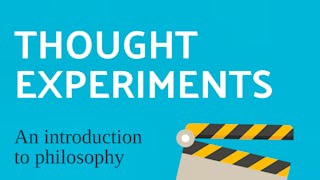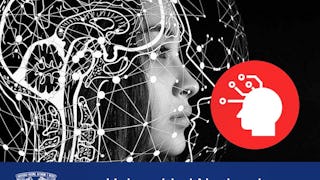- Browse
- Child Psychology
Results for "child psychology"
 Status: Free TrialFree TrialS
Status: Free TrialFree TrialSSimplilearn
Skills you'll gain: Search Engine Marketing, Google Ads, Search Engine Optimization, Marketing Strategies, Web Analytics and SEO, Marketing, Email Marketing, Marketing Analytics, Digital Marketing, Performance marketing, Marketing Psychology, Customer Relationship Management, Paid media, Campaign Management, Marketing Automation, Advertising Campaigns, Google Analytics, UI/UX Strategy, Social Media Marketing, Digital Advertising
4.5·Rating, 4.5 out of 5 stars35 reviewsBeginner · Specialization · 1 - 3 Months
 Status: PreviewPreviewE
Status: PreviewPreviewEErasmus University Rotterdam
Skills you'll gain: Social Justice, Liberal Arts, Systems Thinking, Creativity, Social Studies, Case Studies, Ethical Standards And Conduct, Research, Discussion Facilitation, Psychology, Qualitative Research
3.9·Rating, 3.9 out of 5 stars21 reviewsIntermediate · Course · 1 - 3 Months
 Status: Free TrialFree TrialU
Status: Free TrialFree TrialUUniversity of Illinois Urbana-Champaign
Skills you'll gain: Economics, Behavioral Economics, Supply And Demand, Policy Analysis, Market Dynamics, Business Economics, Public Policies, Socioeconomics, Consumer Behaviour, Political Sciences, Decision Making
4.9·Rating, 4.9 out of 5 stars36 reviewsBeginner · Course · 1 - 4 Weeks
 Status: Free TrialFree TrialU
Status: Free TrialFree TrialUUniversidad Nacional Autónoma de México
Skills you'll gain: Artificial Intelligence, Social Sciences, Psychology, Human Learning, Human Development, Sociology, Theoretical Computer Science, Human Factors, Human Machine Interfaces, Research, Cognitive Behavioral Therapy, Scientific Methods, Science and Research, Robotics
4.6·Rating, 4.6 out of 5 stars53 reviewsBeginner · Course · 1 - 4 Weeks
 Status: Free TrialFree TrialU
Status: Free TrialFree TrialUUniversidade de São Paulo
Skills you'll gain: Project Schedules, Project Risk Management, Work Breakdown Structure, Timelines, Risk Analysis, Risk Mitigation, Scheduling, Project Management, Budget Management, Budgeting, Project Planning, Writing, Peer Review
4.7·Rating, 4.7 out of 5 stars86 reviewsMixed · Course · 1 - 3 Months
 A
AAlfaisal University | KLD
Skills you'll gain: Meeting Facilitation, Workflow Management, Organizational Effectiveness, Brainstorming, Team Management, Productivity, Organizational Skills, Discussion Facilitation, Planning, Leadership, Problem Solving
4.9·Rating, 4.9 out of 5 stars113 reviewsBeginner · Course · 1 - 4 Weeks
 Status: Free TrialFree TrialE
Status: Free TrialFree TrialEEDHEC Business School
Skills you'll gain: Environmental Social And Corporate Governance (ESG), Portfolio Management, Investment Management, Climate Change Mitigation, Finance, Asset Management, Financial Market, Climate Change Adaptation, Investments, Risk Management, Performance Analysis, Sustainable Business, Equities, Risk Analysis, Environmental Regulations, Economics
4.6·Rating, 4.6 out of 5 stars53 reviewsBeginner · Course · 1 - 3 Months
 Status: Free TrialFree TrialS
Status: Free TrialFree TrialSSimplilearn
Skills you'll gain: Social Media Marketing, Social Media Management, Social Media Strategy, Social Media Campaigns, Marketing Strategies, Brand Management, Campaign Management, Marketing, Instagram, Content Creation, Performance Analysis, Email Marketing, Marketing Analytics, Web Analytics, Digital Marketing, Marketing Psychology, Customer Relationship Management, UI/UX Strategy, Digital Advertising, Marketing Strategy and Techniques
4.5·Rating, 4.5 out of 5 stars33 reviewsBeginner · Specialization · 1 - 3 Months
 Status: PreviewPreviewU
Status: PreviewPreviewUUniversitat Autònoma de Barcelona
Skills you'll gain: Stress Management, Mindfulness, Resilience, Mental Health, Personal Development, Crisis Management, Conflict Management, Emotional Intelligence, Physiology, Cognitive flexibility, Leadership
4.9·Rating, 4.9 out of 5 stars82 reviewsBeginner · Course · 1 - 3 Months
 Status: Free TrialFree TrialA
Status: Free TrialFree TrialAArizona State University
Skills you'll gain: Decision Making, Strategic Decision-Making, Complex Problem Solving, Critical Thinking and Problem Solving, Creative Problem-Solving, Ethical Standards And Conduct, Resourcefulness, Risk Analysis, Business Ethics, Social Impact, Analysis
4.6·Rating, 4.6 out of 5 stars53 reviewsBeginner · Course · 1 - 3 Months
 Status: Free TrialFree TrialJ
Status: Free TrialFree TrialJJohns Hopkins University
Skills you'll gain: Business Ethics, Ethical Standards And Conduct, Diversity and Inclusion, Team Leadership, Responsible AI, Artificial Intelligence, Decision Making, Leadership, Cultural Diversity, Leadership Development
4.5·Rating, 4.5 out of 5 stars17 reviewsBeginner · Course · 1 - 3 Months
 Status: PreviewPreviewU
Status: PreviewPreviewUUniversity of Geneva
Skills you'll gain: Cultural Diversity, International Relations, Sustainable Development, Governance, Education and Training, Social Studies, Intercultural Competence, Immigration Law, Economics, Policy, and Social Studies, World History, Policty Analysis, Research, and Development, Public Policies, Emergency Response
4.6·Rating, 4.6 out of 5 stars18 reviewsBeginner · Course · 1 - 3 Months
In summary, here are 10 of our most popular child psychology courses
- Strategic Digital Marketing Channels - SEO & SEM: Simplilearn
- Thought Experiments: An introduction to philosophy: Erasmus University Rotterdam
- Market Equilibrium, Government Policy & Elasticity: University of Illinois Urbana-Champaign
- Cognición encarnada: Universidad Nacional Autónoma de México
- Projeto Aplicado - Introdução a Gestão de Projetos: Universidade de São Paulo
- إدارة الاجتماعات الفعالة | Managing Effective Meetings: Alfaisal University | KLD
- Climate Aware Investing: EDHEC Business School
- Social Media Marketing and Brand Advocacy: Simplilearn
- Superar el estrés rompiendo mitos: Universitat Autònoma de Barcelona
- Decision-Making: Arizona State University










